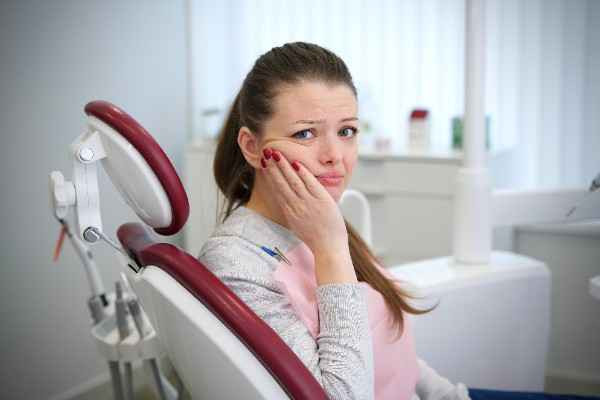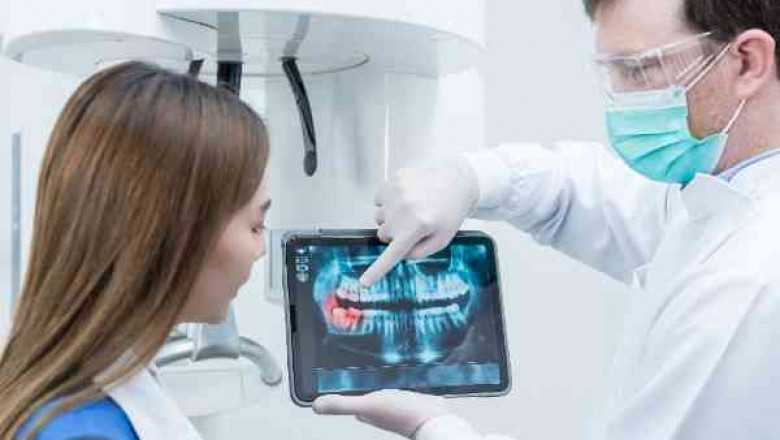views
Tooth injuries can happen at any time, and when they do, they can cause not only physical pain but also emotional distress. Whether due to a sports accident, a fall, or a sudden impact, a dental injury can be a traumatic experience. In these situations, having access to an emergency dentist is crucial to minimize long-term damage, reduce pain, and get back on the road to recovery.An emergency dentist is a specialized professional who provides immediate care for dental injuries and other urgent dental issues. In this blog, we will explore the role of an emergency dentist in treating tooth injuries, the different types of dental injuries, and how seeking prompt care can prevent permanent damage to your teeth. If you're in Wokingham and facing a dental emergency,
Understanding How Tooth Injuries and Their Causes
Tooth injuries are relatively common and can range from minor chips and cracks to more severe injuries such as knocked-out teeth or fractures. Various situations can lead to tooth injuries, including:

- Sports Injuries: Physical contact sports like football, basketball, and hockey are common causes of tooth injuries. Players may get hit in the mouth with balls, elbows, or other players, leading to a cracked, chipped, or knocked-out tooth.
- Accidental Falls: Trips, slips, and falls are some of the leading causes of dental injuries. Children and adults alike are vulnerable to accidents that can result in damaged teeth.
- Car Accidents: In the event of a car crash, individuals may suffer injuries to their mouth or jaw, which can include broken or knocked-out teeth.
- Biting Hard Objects: Chewing on hard foods, ice, or non-food items can result in broken or cracked teeth, especially if there’s already underlying weakness in the tooth.
- Sports-Related Teeth Grinding (Bruxism): For individuals who grind their teeth, they may cause fractures or cracks due to the excessive pressure applied during sleep.
- Physical Trauma: Physical trauma to the mouth can also lead to injuries like broken, cracked, or displaced teeth.
Regardless of the cause, it’s important to know that all types of tooth injuries require prompt attention to avoid long-term consequences. That’s where an emergency dentist comes in.
The Role of an Emergency Dentist in Treating Tooth Injuries
Emergency dentists are specifically trained to handle urgent dental situations. Their role is crucial in preventing further damage and providing quick, effective treatment to help patients recover from tooth injuries. Below are some of the ways an emergency dentist in Wokingham can assist when you experience a dental injury.
1. Assessment and Diagnosis of the Injury
The first step when visiting an emergency dentist is an assessment of the injury. The dentist will carefully examine the damaged tooth or teeth, as well as the surrounding gums and tissues, to determine the extent of the injury. They may take X-rays to check for any fractures below the surface that are not immediately visible.
In cases of severe trauma, the dentist will also assess the jaw and other facial bones to ensure that there are no fractures or other hidden injuries. An accurate diagnosis is essential for determining the best course of action to treat the injury effectively.
2. Pain Relief and Comfort
Tooth injuries can be incredibly painful, and one of the primary roles of an emergency dentist is to provide immediate pain relief. Whether the injury involves a cracked tooth, a knocked-out tooth, or damage to the gums, the dentist will work to alleviate pain and discomfort as quickly as possible.
Depending on the injury, the dentist may recommend over-the-counter pain relief, prescribe a stronger painkiller, or use local anesthesia to numb the affected area for more invasive treatments.
3. Reattaching Knocked-Out Teeth (Avulsed Teeth)
One of the most serious dental emergencies is a knocked-out tooth, known as an avulsed tooth. If a tooth is knocked out due to trauma, it is crucial to act fast to improve the chances of reattachment.
Emergency dentists are skilled in reattaching knocked-out teeth if the patient acts quickly. For the best chance of success, the tooth should be kept moist, preferably by placing it in a cup of milk or saline solution. If you are unable to reinsert the tooth yourself, an emergency dentist will attempt to reimplant the tooth back into the socket.
In some cases, if the tooth cannot be saved, the dentist may discuss options for tooth replacement, such as dental implants or bridges.
4. Treating Cracked or Broken Teeth
A cracked or broken tooth can result from physical trauma or biting down on something too hard. If the damage is minor, an emergency dentist may be able to bond the crack or fracture and restore the tooth with a dental filling or bonding agent.
For more severe breaks, a dental crown may be necessary to cover the exposed part of the tooth and protect it from further damage. In some cases, if the damage is extensive and affects the root, a root canal treatment may be required to save the tooth.
5. Dealing with Displaced Teeth (Luxation)
Displaced teeth are those that have been pushed out of their normal position in the mouth but have not been knocked out. This type of injury requires immediate attention from an emergency dentist, as repositioning the tooth quickly can help restore its function and prevent it from being lost.
In cases of displaced teeth, the emergency dentist may attempt to reposition the tooth back into its correct alignment. They may use splints or other devices to hold the tooth in place while it heals.
6. Treating Soft Tissue Injuries
Tooth injuries don’t just affect the teeth themselves. They can also cause damage to the surrounding gums, lips, cheeks, and tongue. A dental injury can lead to cuts or tears in the soft tissue of the mouth, which may require stitches or other treatments.
An emergency dentist will carefully clean and disinfect the area and may apply stitches if necessary to close any open wounds. In some cases, the dentist may also provide a special mouthguard or other measures to protect the soft tissue from further injury.
7. Follow-Up Care and Restoration
Once the immediate injury has been treated, an emergency dentist will discuss a follow-up care plan to monitor the healing process and restore the tooth’s function and appearance. Depending on the injury, restorative procedures like dental bonding, crowns, or root canals may be needed to fully restore the tooth’s health and appearance.
In the case of a knocked-out or severely damaged tooth, the dentist may also discuss replacement options, such as dental implants or bridges, to help restore your smile.
Why You Should Seek Immediate Care from an Emergency Dentist
When a tooth injury occurs, it’s important to seek immediate treatment from an emergency dentist in Wokingham to ensure the best possible outcome. Delaying treatment can result in permanent damage, infections, or tooth loss. By seeking care early, you increase the chances of saving the tooth, reducing pain, and preventing further complications.

In addition, emergency dental treatment helps alleviate anxiety and stress associated with dental injuries. Having a professional to guide you through the process can make the experience more manageable and give you peace of mind.
Conclusion
Tooth injuries can happen unexpectedly, but prompt attention from an emergency dentist is crucial to minimizing damage and restoring your smile. An emergency dentist in Wokingham can assess the injury, provide pain relief, and offer treatment options tailored to your needs. Whether it’s a knocked-out tooth, a cracked tooth, or soft tissue damage, seeking immediate dental care can help ensure the best possible recovery.If you find yourself in need of urgent dental care, EDW offers expert emergency dental services in Wokingham. Our team is ready to provide fast and effective treatment to restore your smile and alleviate your pain. Contact us today to schedule an appointment and receive the care you need.














Comments
0 comment